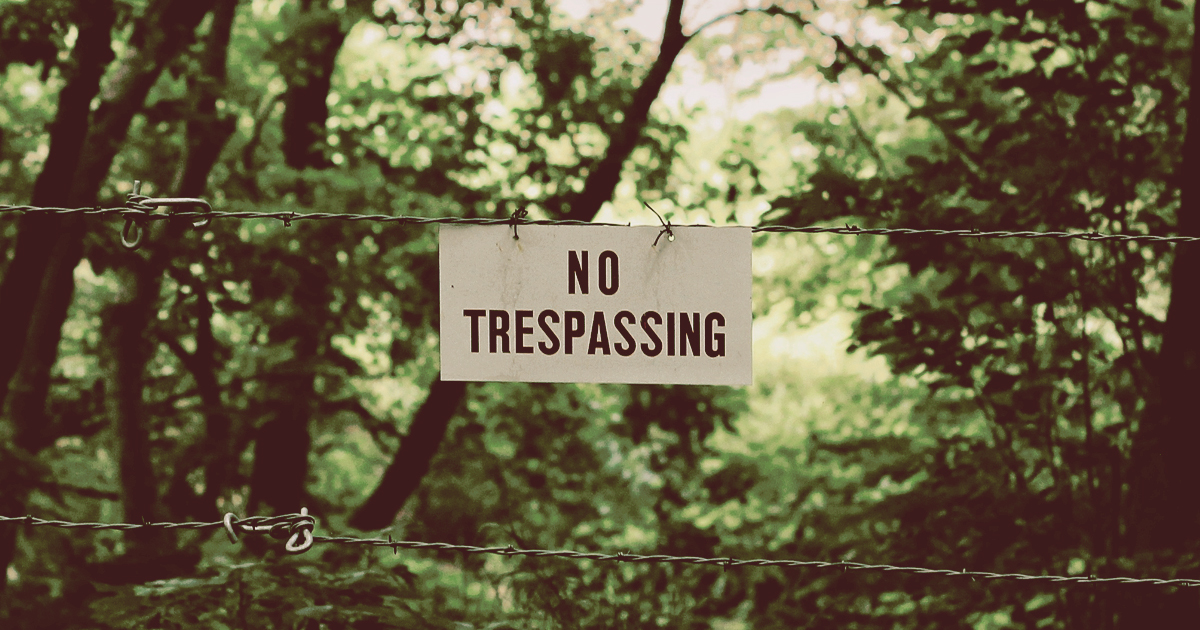There are certain protections for private landowners under what is called recreational immunity. With the Spring season underway, many residents as well as tourists, enjoy venturing outside. People across the United States will be packing their tents, prepping their backpacks, fixing their bikes, donning their hiking shoes, inspecting canoe and kayak paddles, and performing maintenance on their all-terrain vehicles.
While there are many national and state parks in which folks can enjoy the outdoors, some outdoor explorers will likely traverse across privately-owned land.
Landowners need to understand the risks and possibilities of being held liable for personal injury, death, or property damage from others crossing onto their property. Aside from trespassing, even if someone has asked and gained permission to forage, walk, hike, camp, or follow a trail through one’s land, it’s important to be cognizant of state statutes. All states have enacted statutes that confer some degree of protection to landowners who allow the public to use their land for recreational purposes—commonly referred to as “recreational use” or “recreational immunity” statutes.
Recreational Use Statutes (RUS), are particularly important to many rural landowners such as farmers, arborists, managers of orchards, and owners of forested lands. The laws can vary by state, and landowners often do not have a duty to inspect or maintain their property for safe recreational use. Waterways, lakes, rivers, and even pools may have different requirements—and actions or conditions that deliberately cause harm may remove any immunity the landowner has.
Each state also varies in what it considers “recreational activity”. All SC county statutes may or may not address things like fishing, hunting, foraging, rock climbing, kayaking, horseback riding, or cave exploring.
Some states make a distinction for landowners who “maliciously” fail to warn users of an unsafe condition— while in other states, plaintiffs must show a willful or malicious failure to guard or warn against a dangerous condition.
Recreational immunity may not extend to the landowner’s own social guests, or in cases in which the landowner has expressly granted someone permission to use their land—and recreational immunity is typically removed when the landowner allows people to use their property in exchange for money or other compensation. Landowners should take comfort knowing that recreational immunity provides a significant hurdle to liability as long as they do not charge a fee. In some cases, allowing recreational use—particularly in partnership with local clubs—can benefit a landowner by creating usable trails and deterring other “bad actor” trespassers.
A landowner’s obligation to post warning signs and ‘no trespassing’ signs can vary by state. In some states, a landowner must post a sign warning of a known danger, while in other states, users can be liable for property damage if they ignore a sign indicating that the property is closed to the public.
The South Carolina Department of Natural Resources (SCDNR) lists the law requiring landowners to post “No Trespassing” signs at four conspicuous places—or every 100 feet—and at all corners and access points. Once the property is posted, no one may enter the property for any purpose without permission. The SCDNR also lists part of the Title 16 law—similar to Title 50; 50-1-90; Hunting, Fishing, Trapping without Consent—which does not require sign posting, however, legal cases can be enhanced with proper sign posting. Any law enforcement officer can enforce this statute and it can be used when persons fish, cut timber, steal straw, and/or generally deprive the landowner of a right or the value of their property.
If you or someone you know is a landowner and chooses to allow for the recreational use of property, become familiar with the South Carolina laws governing such action. Consult with one of our qualified attorneys to further understand any obligations, and to ensure that legal rights are not inadvertently waived under recreational immunity laws.
With more than 100 years of combined experience, The Floyd Law Firm PC remains committed to helping our clients navigate the legal concerns of property ownership. For over 49 years our law firm has worked in Surfside Beach, assisting clients throughout South Carolina.
Resources:
South Carolina Code of Laws
Title 27 – Property and Conveyances – Limitation on Liability of Landowners
Title 50 – Fish, Game and Watercraft
South Carolina Department of Natural Resources (SCDNR)
Title 16 – Entry onto another’s pasture or other lands after notice; posting notice and for various purposes without permission




